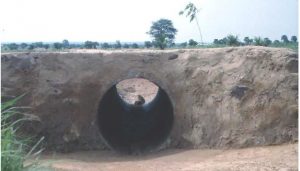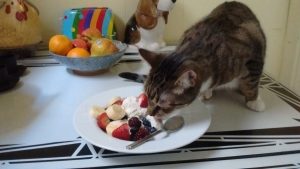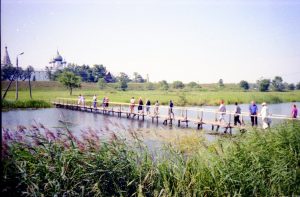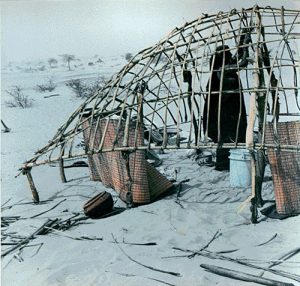New York City College of Technology (CUNY)
300 Jay Street
Brooklyn, New York 11201
SYLLABUS
English Composition II
ENG 1121-D477
T/Th 2:30-3:45
Midway 304
Spring 2019
Professor Aaron Barlow
Office: 503 Namm
Office Hours: W 10:00-3:00 and by appointment.
718-260-5431
abarlow@citytech.cuny.edu
 Course Description:
Course Description:
An advanced course in expository essay writing that also requires a library paper. Further development of research and documentation skills (MLA style). Assigned literary and expository readings.
Course Learning Outcomes:
1. Read and listen critically and analytically in a variety of genres and rhetorical situations: Identify and evaluate exigencies, purposes, claims, supporting evidence, and underlying assumptions in a variety of texts, genres, and media.
2. Adapt and compose in a variety of genres: Adapt writing conventions in ways that are suitable to different exigencies and purposes in a variety of contexts, including academic, workplace, and civic audiences. When appropriate, repurpose prior work to new genres, audiences, and media by adjusting delivery, design, tone, organization, and language.
3. Use research as a process of inquiry and engagement with multiple perspectives: Learn to focus on a topic and develop research questions that lead to propositions and claims that can be supported with well-reasoned arguments. Persuasively communicate and repurpose research projects across a variety of contexts, purposes, audiences, and media. Demonstrate research skills through proper attribution and citation gathering, evaluating, and synthesizing both primary and secondary sources. Learn how to use appropriate citation styles depending on disciplinary and situational requirements (MLA, APA, Chicago, etc.)
4. Use reflection and other metacognitive processes to revise prior assumptions about the writing processes and transfer acquired knowledge about effective reading and writing practices into new writing situations. Engage with reading and writing as a process including prewriting, writing, and continuous revision. Students write essays that demonstrate their reflection of their own writing process from the beginning and throughout the semester with the intention to transfer their acquired knowledge about genre and composing practices into new writing situations.
5. Demonstrate the social and ethical responsibilities and consequences of writing: Recognize that first-year writing includes academic, workplace, and civic contexts, all of which require careful deliberation concerning the ethical and social ramifications concerning fairness, inclusivity, and respect for diversity. Write and revise for academic and broader, public audiences accordingly.
6. Compose in 21st Century Environments: Learn to choose among the most current and effective delivery methods for different composing situations, including composing in new media environments, including alphabetic texts, still and moving images, sonic, and mixed media compositions. Use digital media platforms appropriate to audience and purpose.
Course Policies:
Students will behave in a mature, respectful manner. Be alert and engaged. Electronic devices may only be used when specifically allowed by Professor Barlow, though you can keep them on vibrate. In an emergency, leave the room to take a call or respond to a text. If you need to eat, please don’t bring an entire meal—but a snack and a drink would be fine. Treat all members of the class politely. Behaving counter to these guidelines could result in your being asked to leave the classroom and will affect your grade. Unless specifically cited in an approved format, all of your work must be your own. That is, you cannot cut-and-paste into your papers without providing the source and cannot simply paraphrase the work of others, again unless a source is provided. Otherwise, your work will be considered plagiarized and given. When you email Professor Barlow, you must include the course and section numbers in the subject line. The class Open Lab site can be found at this address. Join using your City Tech email account. To do so, click on “Course Profile” at the top of the page and then click on “Join Class!” under the picture of the Brooklyn base of the Brooklyn Bridge.
Required Texts:
See schedule. In addition to those listed, there will be other assigned readings from time to time.
Grading:
Grades depend on attendance, participation, papers drafted throughout the semester and the portfolio:
• Consistent attendance, on time and focused on the day’s activity, will make it much easier to pass this course.
• Participation includes working well in groups and responding constructively to the work of others. It will count for 15% of your final grade.
• Editing of the work of others in the class will count for 10% of your grade.
• Papers throughout the semester will count for 25% of your grade.
• The Portfolio will count for 50% of your grade. The portfolio will be an organized digital presentation of all of your work over the semester including drafts and your final products.
New York City College of Technology Policy on Academic Integrity
Students and all others who work with information, ideas, texts, images, music, inventions, and other intellectual property owe their audience and sources accuracy and honesty in using, crediting, and citing sources. As a community of intellectual and professional workers, the College recognizes its responsibility for providing instruction in information literacy and academic integrity, offering models of good practice, and responding vigilantly and appropriately to infractions of academic integrity. Accordingly, academic dishonesty is prohibited in The City University of New York and at New York City College of Technology and is punishable by penalties, including failing grades, suspension, and expulsion. The complete text of the College policy on Academic Integrity may be found in the catalog.
SCHEDULE
Unit 1: The Literacy Narrative:
The goals for this assignment are fourfold: 1) You will learn to better understand your own reading and writing processes and the relationship between the two. 2) You may gain a greater sense of your own past literacy experiences and how they have shaped how you envision yourself as a writer in the current moment. 3) You will reflect on your own schooling and educational influences and examine the social cultural, and political issues involved in accessing language fluency. 4) You will explore your understandings of the ethnic and cultural diversity of written English as well as the influence of other registers, dialects, and languages.
Week One:
Class One (1/29): Introduction: What does it mean to read? To write?
Class Two (1/31): Writing: What’s the deal?
Week Two:
Class Three (2/5): Reading #1: “Responding—Really Responding—To Other Students’ Writing” (Richard
Class Four (2/7): Reading: Why do it?
Week Three:
Class Five (2/14): Reading #2: “Learning to Read” (Malcolm X)
Week Four:
Class Six (2/19): Writing from your perspective. Revised Draft of Literacy Narrative Due.
Unit 2: Rhetoric, Genre, Discourse
The goal of this unit is for you to understand how different rhetorical genres and discourse communities influence and create each other. We will begin this assignment with an introduction to rhetorical situations with key vocabulary for orientation. “Exigence,” “audience,” “constraints,” and “text” are key. The acronym TRACE (Text, Reader, Author, Constraints, Exigence) will be our starting point. Building from text, you will begin to look at genre, and from there, to discourse communities. The next step is to begin to notice the multiplicity of genre conventions and their relationship with various and sometimes overlapping discourse communities, and to understand the social, dynamic, and ephemeral nature of genres and their communities.
This assignment asks you to identify a discourse community and examine the ways that discourse communities inform rhetorical situations and rhetorical choices. Specific discourse communities for our use will defined by the class as specific academic, cultural, ethnic, religious, social, artistic, or other communities. One thing that discourse communities share is a common specialized interest and linguistic discourse. By closely analyzing specific discourses that we may have previously ignored or taken for granted and rhetorically analyzing linguistic artifacts, you will become more aware, not only of how discourse functions within the particular community out of which the artifact arose, but of the powers and limitations of language as it travels within and through various discourse communities.
This assignment offers a means for you to understand and use a variety of different types of research, including ethnography, analysis of artifacts, interviews, or other tactics using primary sources. The final product for this assignment will be either an analytic paper, a creative assignment, an Op-Ed or popular article, a report, a letter, a review, a website, or a multimedia project. In any case, you should emerge with a deeper understanding of the ways in which discourse communities define rhetorical situations through audience, establishing a shared language, and promoting common interests or goals.
Class Seven (2/21): The logic of language.
Week Five:
Class Eight (2/26): Reading #3: “Crafting Theology: Toward a Theory of Literacysmiths” (Natalie Saleh)
Class Nine (2/28): The circle of conversation: Who are you writing to? Who is writing to you?
Week Six:
Class Ten (3/5): Reading #4: “Writing ass a Mode of Learning” (Janet Emig) https://openlab.citytech.cuny.edu/fywpd/files/2019/01/emig-writing-as-a-mode-of-learning.pdf.
Class Eleven (3/7): Communities and classrooms.
Week Seven:
Class Twelve (3/12): Writing as stepping in. Unit 2 Writing Assignment Due.
Unit 3: Inquiry Based Argumentative Project
This assignment asks you to continue looking outside your school lives and tackle an urgent current social problem such as voter suppression, empowerment of specific communities, or the epidemic of shootings, or something that is particularly important to you and/or a specific discourse community, possibly the one they researched in assignment 2. The goal is for you to create an argumentative essay that 1) begins with focused research questions about a specific problem or issue, 2) includes primary and secondary research to identify stakeholders analyze different perspectives, 3) incorporates brainstorming about possible solutions or the repercussions of inaction, and 4) ends with a draft of a position paper. This can be either an individual or collaborative assignment, and might be used for Assignment 4 and translated into different media targeting a specific audience affected by the problem addressed.
Class Thirteen (3/14): Strategies for questioning.
Week Eight:
Class Fourteen (3/19): Reading #5: “Introduction to Primary Research: Observations, Surveys, and Interviews” (Dana Lynn Driscoll)
Class Fifteen (3/21): Strategies for arguing.
Week Nine:
Class Sixteen (3/26): Reading #6: “Internal Revision” (Donald Murray) .
Class Seventeen (3/28): Methods of research: Secondary.
Week Ten:
Class Eighteen (4/2) The importance of position. Position Paper Due.
Unit 4: Repurposed Multimodal Project
This assignment asks you to re-think, or re-envision, one of the assignments you have written previously in the semester, presenting it in a totally new genre, perhaps changing modes: for example, a revision that goes from a written essay to an audio podcast, website, graphic, video essay, rap album, or mixed modal. This assignment builds on the generic, rhetorical and audience awareness that you have worked on all semester long, asking you to consider what discourse community you are trying to reach and, not only what diction, but also what mode of delivery would be best for delivering your message.
This “translation” is key to transfer, one of the core learning outcomes of this course. If you can take a message and transform it for different audiences and media, then you are well on their way to being able to transfer writing skills across fields, disciplines and discourse communities.
Class Nineteen (4/4): Considering vehicle and style.
Week Eleven:
Class Twenty (4/9): Reading #7: “College Students and Social Media” (Chelsea Harrison) .
Class Twenty-One (4/11): Transitioning among media.
Week Twelve:
Class Twenty-Two (4/16): Reading #8: “Digital Natives and Digital Immigrants” (Phill Michael Alexander)
Class Twenty-Three (4/18): Talent, skill and choice.
Week Thirteen:
Class Twenty-Four (4/30): Where does it take you? Multimodal Project Due.
Unit 5: Final Portfolio Assignment
The final portfolio assignment asks you to complete three tasks. 1) To revise selected work from the course of the semester. In so doing, you will offer prefatory remarks concerning each piece that describes the process and the evolution of the project over the course of the semester. 2) You will also write a narrative that explains your evolution as a reader and writer over the course of the semester. You will return to the first assignment you wrote for the class (the literacy narrative) and compare how your thoughts about writing and your practices about writing have evolved over the course of the semester. It is important to recognize that you should not simply state that your writing has changed over the course of the semester, but you should be able to specifically describe with sufficient detail particular moments in the semester where you can substantiate your own growth. 3) Lastly, consider how this course has prepared you for transfer—that is, for writing in other contexts. This component raises the issue of how you might anticipate how the work that you have done over the course of the semester has prepared you to compose in environments and in genres unfamiliar to you. These might be a lab report for another class, writing copy for a company’s website, or some other scenario. You will describe the steps you would take towards figuring out how to go about learning how to accomplish these writing tasks.
Class Twenty-Five (5/2): Expanding and reorganizing.
Week Fourteen:
Class Twenty-Six (5/7): Reading #9: “Rigid Rules, Inflexible Plans, and the stifling of Language: A Cognitivist’s Analysis of Writerr’s Block” (Mike Rose).
Class Twenty-Seven (5/9): Introducing and reconsidering.
Week Fifteen:
Class Twenty-Eight (5/14): Reading #10: “Reflective Writing and the Revision Process: What Were You Thinking?” (Sandra Giles)
Class Twenty-Nine (5/16): Making it all whole.
Week Sixteen:
Class Thirty (5/21): Hooray, we’re done! Portfolio Due.















